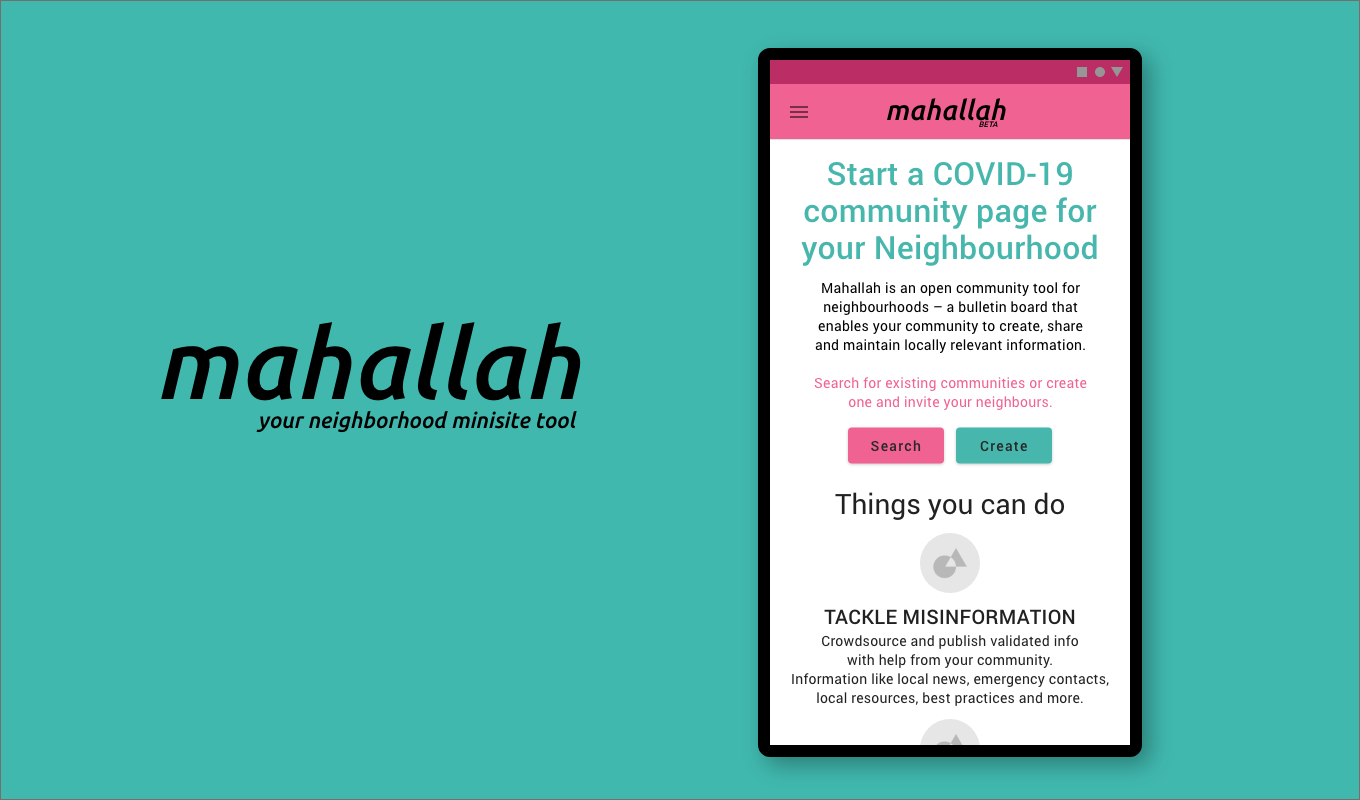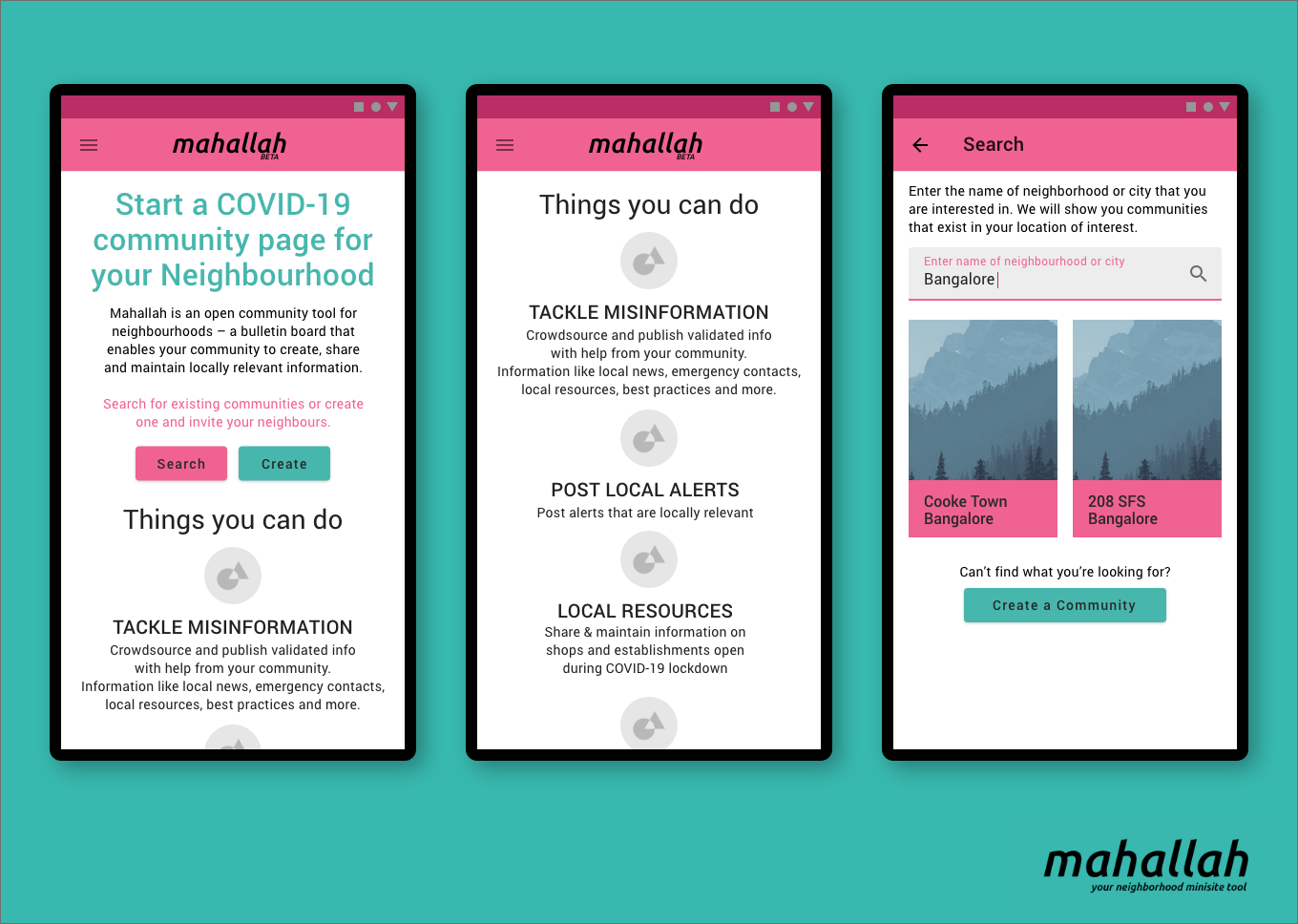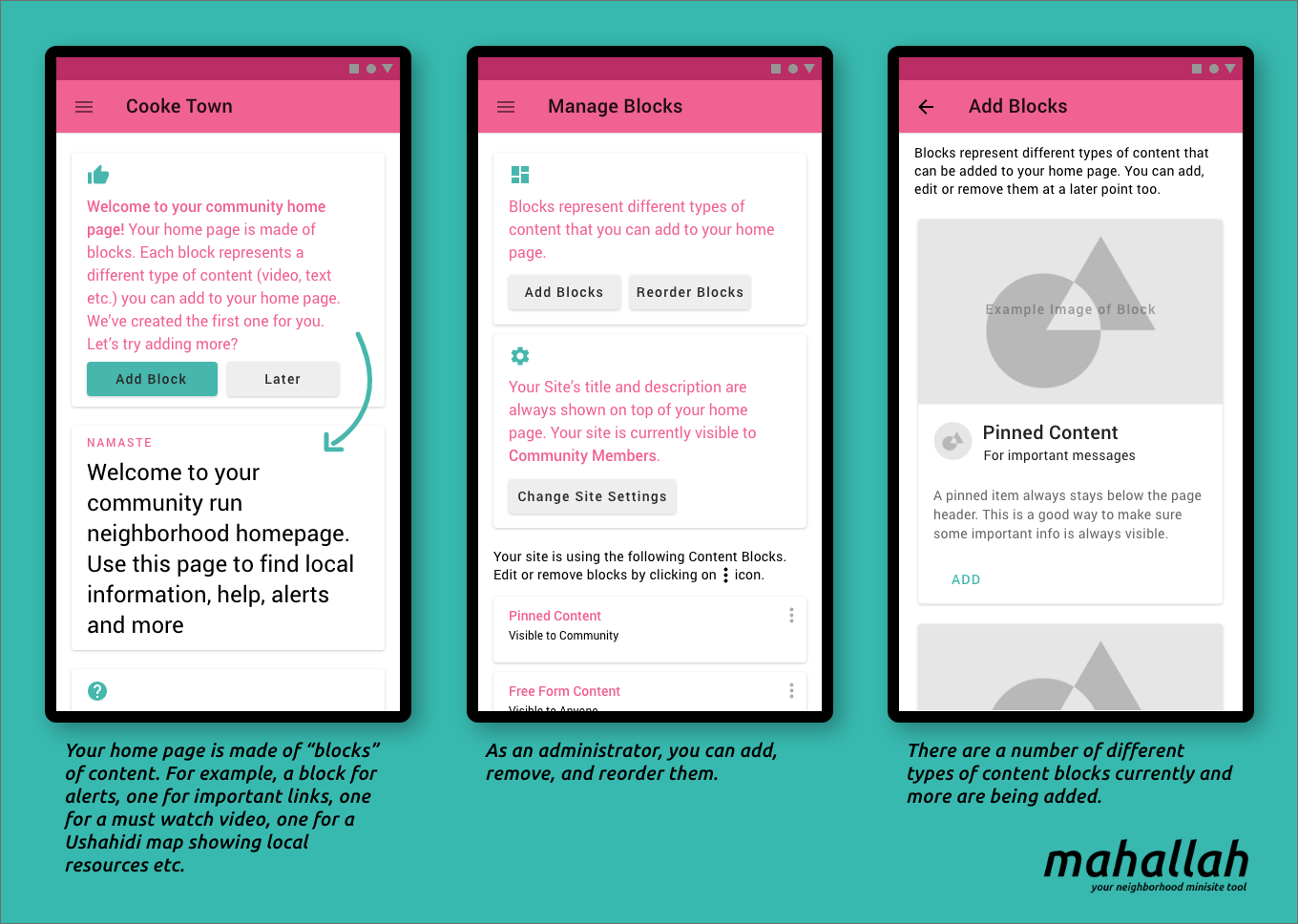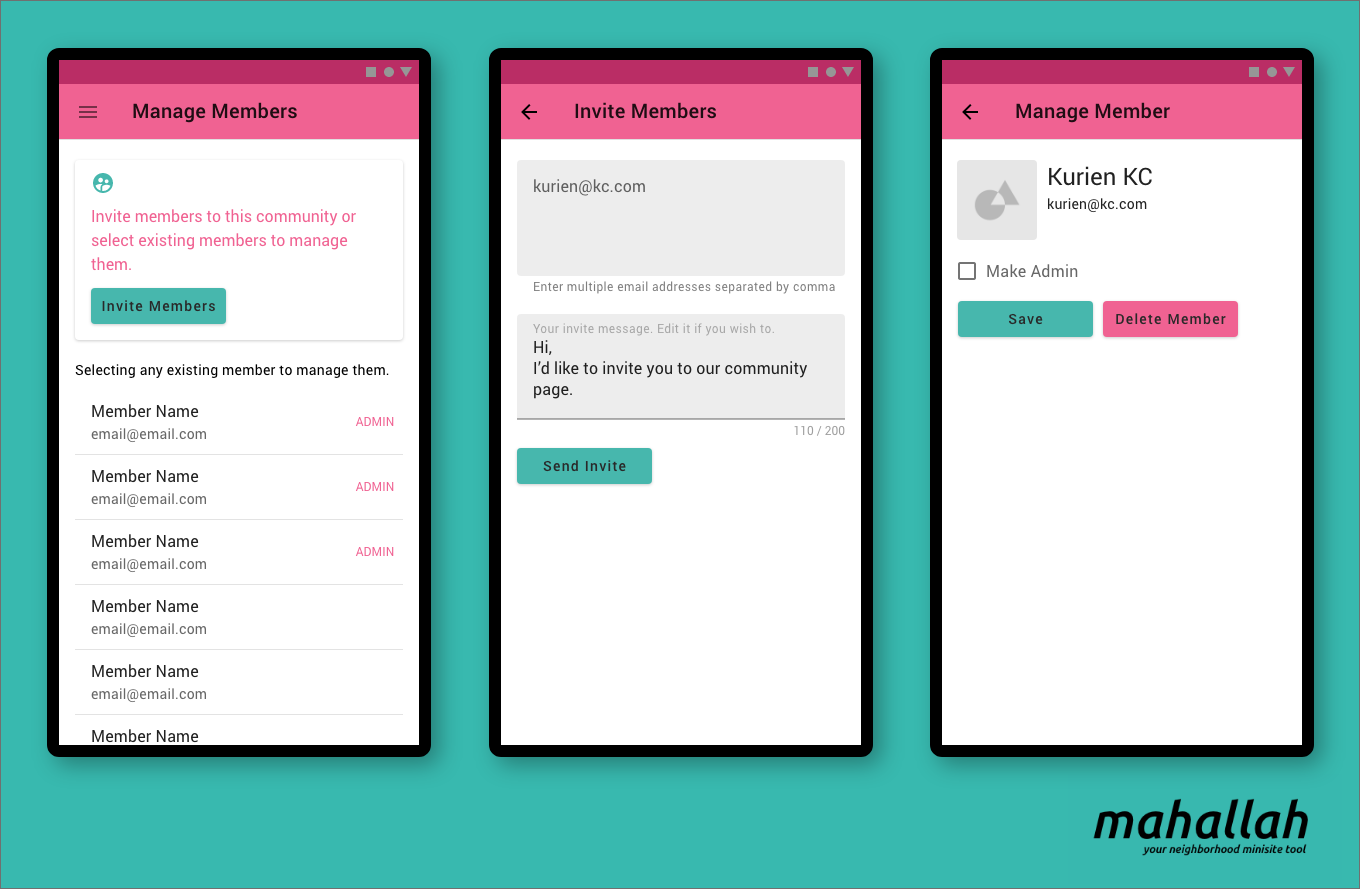
At Ushahidi we’ve been thinking a lot about information flow around COVID-19, there is a lot of data, some misinformation, and local and city-level updates. While there is national and city-level information and organization in most places, smaller communities are left alone to figure out how to self-organize and respond to the coronavirus in their own neighborhood. This brings about a couple different problems.
First, the rapidly changing information on what is going on, the messaging of news and updates from the national and municipal governments are hard to find in one place. This is coupled with the issue that there are a number of other neighborhood initiatives that are happening in private WhatsApp groups, Facebook groups, broadcasted via Twitter hashtags, or found in other platform communications.
Second, the resources for you to prepare yourself, your home, and your local neighborhood, plus the information on treatment or how to keep yourself and your family active and busy while quarantined at home is sometimes difficult to find.
Solution
Enter Mahallah.org a simple community site creation tool that carries all of the information needed for people in your neighborhood in one place so you’re not struggling to find it from a dozen different websites. A trusted place that communicates what is going on in real-time and what local community resources are available.
This is a global problem, so we need a solution that can work in Atlanta and London, as well as in Nairobi and Tehran. While many of us tech people can create a quick HTML page for ourselves in our own community, the idea is to have a small platform that non-technical people can create for their neighborhood.
On top of this it’s important to differentiate between what “everyone” sees about your community versus what people in your own neighborhood can see and share. For this, we’ve created a way for the administrator to invite others into (or approve others) into the neighborhood Mahallah page.

This new minisite platform is in its early stages, so think of this as an usable and early version to get started with. We have some more features coming soon including:
- Images in posts
- The ability to put PDFs into an area for the neighborhood to find
- Integration for help-request sites that already exist in Ushahidi Platform (since there are so many it'd be cool to have it more nicely integrated)
- Integration of a simple help/request listing thing as an alternative to the above for those who don't use Ushahidi's Platform
- A pre-setup option where you can get a bunch of resources into your page automatically (ie like templates, based maybe on country/location/user selection) so that onboarding is much faster.
Start your own Mahallah
- Go to https://mahallah.org
- Search to see if your community already has a minisite (if so, join and help with it instead of creating your own)
- To create your own, register a username and password.
- Give your minisite a name, a welcome message, description, and add your neighborhood location.
- Make it accessible to just your community, or to everyone.
- Verify the location on a map.
- Choose blocks that you would like to add, current blocks are:
- Email form
- Featured YouTube video
- Freeform content
- Page header
- Pinned item
- RSS feed
- Ushahidi map
- WhatsApp Group link
- Invite your neighborhood members to the minisite


Mahallah was designed to be mobile phone friendly first, and we expect a lot of the local day-to-day communications to go through your own local WhatsApp groups. The minisite is to keep everyone informed of the big news and updates and create a landing page for your community to find the information in one place.
Let us know how you're using it. And of course, let us know how you think it can be improved!
Note: Mahallah means “neighborhood” or "community" in countries ranging from India to the Middle East. Arabic: محلة maḥalla; Bengali: মহল্লা môhollā; Hindustani: मोहल्ला; محلہ mōhallā; Persian: محله mahalleh; Azerbaijani: Məhəllə; Albanian: mahallë or mahalla, or mëhallë or mëhalla, Bulgarian: махала
It is an open source platform (code repo here and public roadmap here), and was created for us to use in our own neighborhoods by Ushahidi’s CTO Romina Suarez in Uruguay, as well as Ushahidi alumni, including Vaibhav Bhawsar in India, Seth Hall in the USA, and Erik Hersman in Kenya.